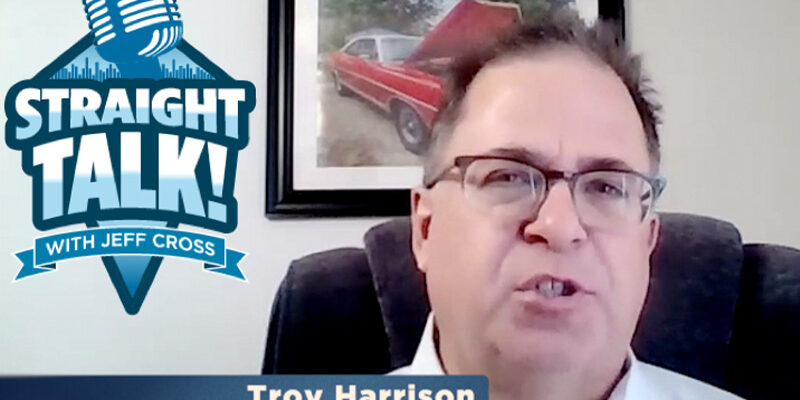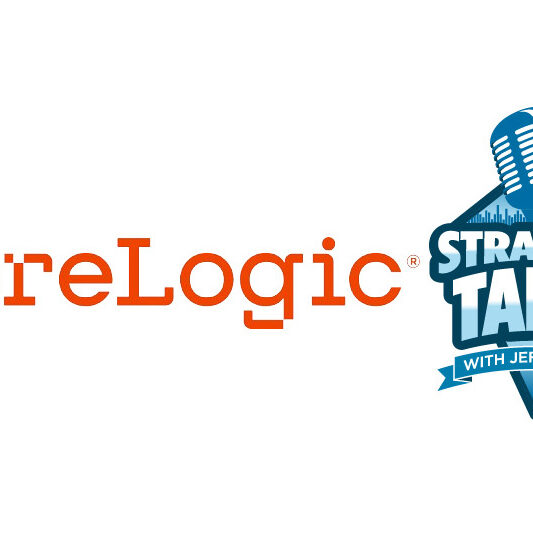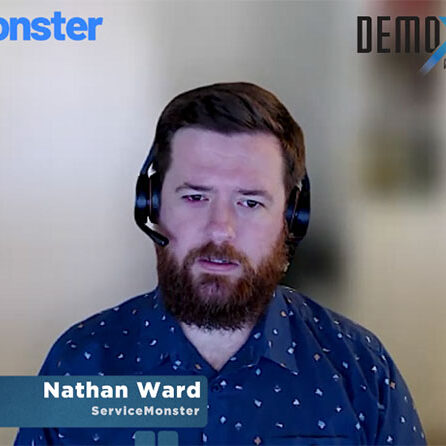How to Pay your Dream Team Members

By Howard Partridge
So far in this article series, we have covered…
- The 8 Steps to Building Your Dream Team
- How to FIND Dream Team Members
- How to ATTRACT Dream Team Members
- How to HIRE Dream Team Members
Today, we’ll talk about pay. Most business owners want the best team members, and they assume they can’t afford them. They assume that pay is the most important thing to a team member. They assume people don’t want to work and that the only way to get them to show up and do a good job is to pay them more.
Well, my high school driver’s education teacher told the class what the definition of ‘ASSUME’ was even back then. You probably know what I mean by that, so I won’t go into further detail. I can still see the word written with blue marker on the white board to this day.

At the end of the day, your employees want to do work that has meaning.
I have done a lot of assuming in my career. Today, I have 33 team members in our cleaning business who care for high-end rugs, carpets, upholstery, and natural stone floors. We work in some of the most expensive homes in the city and serve the area’s most prominent citizens, celebrities, and world leaders. Former President George H. Bush and First Lady Barbara Bush were clients before they passed away.
So, of course, our technicians must be very well trained and compensated. But, if you were to assume that pay is the most important part of someone’s compensation, you would be wrong.
This past Saturday, the chief operating officer of one of my client’s companies shared their leadership pillars with one of my groups.
The company started as a carpet cleaning company and then became a restoration/reconstruction company. They will make $50M in revenue this year. The young man who is now COO started with my client’s company 12 years ago when he was only 27. But he was no ordinary 27-year-old. He was a major league baseball player and was considered one of the top five in the world at that time.
After an elbow injury, he had an opportunity to reexamine his life. Although he went back to baseball after rehab, he knew it wasn’t his destiny. He no longer enjoyed the locker room culture. He went to work for my client for $10 an hour! A major league baseball player!
He was told that he could learn sales from my client, which he did. But more importantly, he fit the culture and became the COO of a $50M company. That is proof it’s not always about the money.
The Leadership Challenge, one of the best collections of leadership books written based on almost fifty years of research, reveals that more important than pay, team members have several other priorities. Their research is also confirmed by other organizations as well.
The value chain begins when people feel like they are included. They don’t want to feel like they are kept in the dark. My experience is that all people have a deep longing for belonging. They want to be part of something that makes a difference.
Furthermore, they want to feel important and accepted. These employees want to know that their work has meaning. After all, why would people give up a 20% raise to get their manager fired, as one study revealed? Why are people leaving well-paying jobs in droves, creating The Great Resignation? The reason is simple: During the pandemic, they realized they were giving up their very lives for a paycheck.

Your employees want a positive work environment. Provide that to them.
Instead, employees want a positive work environment. They don’t want a stressful, overbearing boss—they want an encouraging leader. In a previous installment in this series, I shared what employees are looking for in a leader. It doesn’t mean they won’t work hard. They will if you give them the right fuel.
The next thing people value is a flexible schedule. They want to be able to serve their family. They don’t want to be a slave to the business like you might be. They don’t have the investment in the business like you do. They don’t want to work seven days a week, 12 hours a day.
Finally, before pay comes benefits. Vacation, health insurance, 401k, and things of that nature are more important than monetary compensation for many. If you doubt that, look at the U.S. Military. Or think about people who work in a ministry. I was coaching a very accomplished woman the other day who runs a non-profit. Although she could make so much more money building a for-profit business, she feels called to the non-profit realm.
And therein lies the rub. At the end of the day, people want to do work that has meaning. So, understand why you do what you do, and how what you do makes a difference in the lives of your clients and vendors. Then, share that with your potential and existing team members.
Purpose is what makes a difference. The ongoing Gallup Employee Engagement Poll reveals that 70% of American workers are disengaged and 18% are actively disengaged which means they hate their jobs. They are telling their friends how much they hate their bosses specifically too. Don’t be that person. Be the leader people love to follow.
Believe it or not, the work I do in coaching has attracted highly talented people who volunteer for me. It blows my mind. I always find ways to compensate them. And of course, that doesn’t happen in my cleaning company, but people love the company, and they are highly engaged and perform at a very high level.
So, let’s talk about monetary compensation because people do need to get paid, and they deserve to get paid well. My experience is that if you have the right person and the right culture, you can use practically any compensation method and create a win-win.
Compensation methods
1 | Hourly
The advantage of hourly pay for the team member is that they know exactly what they will get, and you may be required to pay hourly anyhow. I am not an attorney, and this is not legal advice, but most often, employees are required to be paid hourly. The challenge is balancing the budget when you are short-handed, jobs take longer than expected, or there is a lot of drive time.
2 | Salary
The advantage of a salary method is that you can budget it with ease. The downside is that, when revenue is down, you pay the same amount of money. The downside to salary for a team member is that more and more work gets piled on them because there is no additional cost. Also, let me caution you that there are certain rules that are required to be followed when paying someone a salary. Since I can’t give you legal advice, I’ll let you look these rules up for yourself now that you are aware they exist.
3 | Commission
Commission comes into play when a team member is selling for you. The advantage is people get paid based on what they sell. The disadvantage is that people may tend to oversell and put too much pressure on the prospect. Again, there are some hard and fast rules about commission. Putting technicians on straight commission is a bad idea. However, I have a solution for you which we will discuss further below.
4 | Subcontractor
This method is prevalent in this industry. In this case, it’s much like straight commission when it comes to cleaning jobs. I will give you the job, you clean it, and you get a commission. However, again, there are some hard and fast rules to this compensation form. You cannot dictate their schedule; they must have their own equipment and they must be able to work for other people. Please check out the legalities for yourself.
The best method in my opinion is a BASE + PERFORMANCE PAY system. For technicians, we pay a low hourly amount and make sure that they get their proper overtime. Then, we give them a percentage based on their level of expertise.
Levels of expertise
We have three levels:
- Base Technician: Knows carpet and tile
- Intermediate: Knows upholstery
- Advanced: Knows a specialty service such as rug cleaning, stone care, or carpet repairs.
They are thoroughly trained and certified in these areas. This makes them more valuable to us. Therefore, they get a bigger production bonus.
Our inside sales team is on BASE + PERFORMANCE that is tied to the number of bookings they have. Their hourly pay compensates them for the hours worked, and they get rewarded for their performance.
The entire team gets a bonus when we hit our monthly sales goal. One day, I was at our weekly meeting, and everyone was super excited. When I inquired what everyone was jazzed about, my operations director informed me that we had hit our sales goal, and everyone was getting a $1,000 bonus! Did I mention I have 33 people on my team? The math was pretty simple. This meant I just paid out an extra $33,000! Or did I?
What really happens every time they reach the goal, which is routine, is I make more too.
I learned these secrets from my friend and colleague, Ellen Rohr. Many years ago, Ellen Rohr led Benjamin Franklin Plumbing from zero to over $40M in franchise sales. When the company moved, she didn’t want to move from her home and put her shingle out as a consultant. That’s when I met her. Today, she is building her own empire called Zoom Drain, Inc. with partners.
When Ellen came to consult with us many years ago, we didn’t have the best compensation program. Our labor rate was 35% and we weren’t charging enough, so we were losing money even though we were billing $2.5M per year.
Raising prices helped fix the profitability issue and creating a win-win compensation program brought us the rest of the way.
The basic compensation structure I learned from Ellen is this:
- If they get the work done on time and on budget, they get to stay.
- If they get the work done late, and/or over budget, they get coached, but not forever.
- If they get the work done early and/or under budget, they get to share in the gains.
So, we created this structure:
- Technicians and inside sales: Low hourly base, plus a performance bonus % based on their level of expertise. Remember, I shared the three levels earlier. If it is a two-man crew, there is a split in production bonuses, with the lead tech getting the bigger percentage. Benefits grow as people stay with the company.
- Referral marketing reps: Hourly
Everyone participates in the company-wide Sales Bonus. And if we hit a certain mark, we buy them all breakfast at a favorite breakfast spot.
Directors and managers get a salary, plus a specific production bonus tied to their role. For example, the operations director gets a bonus when labor and materials are kept in check.
Remember that until you understand your numbers, you really can’t create an effective pay plan.
In my next article, I’ll talk about training.
Howard Partridge started his cleaning business from the trunk of his car nearly 40 years ago and built it up to over $4 million per year. For two decades, Partridge has coached cleaning and restoration companies, teaching them to have phenomenal success. He is the exclusive small business coach for Ziglar Inc., the world’s first Ziglar Legacy Trainer, the founding member of the John Maxwell Coaching Team, a DISC Certified Trainer, a ONE THING Certified Trainer. a Certified StoryBrand Guide, and No. 1 bestselling author of 12 books including his latest: F.T.I. (Failure To Implement).












